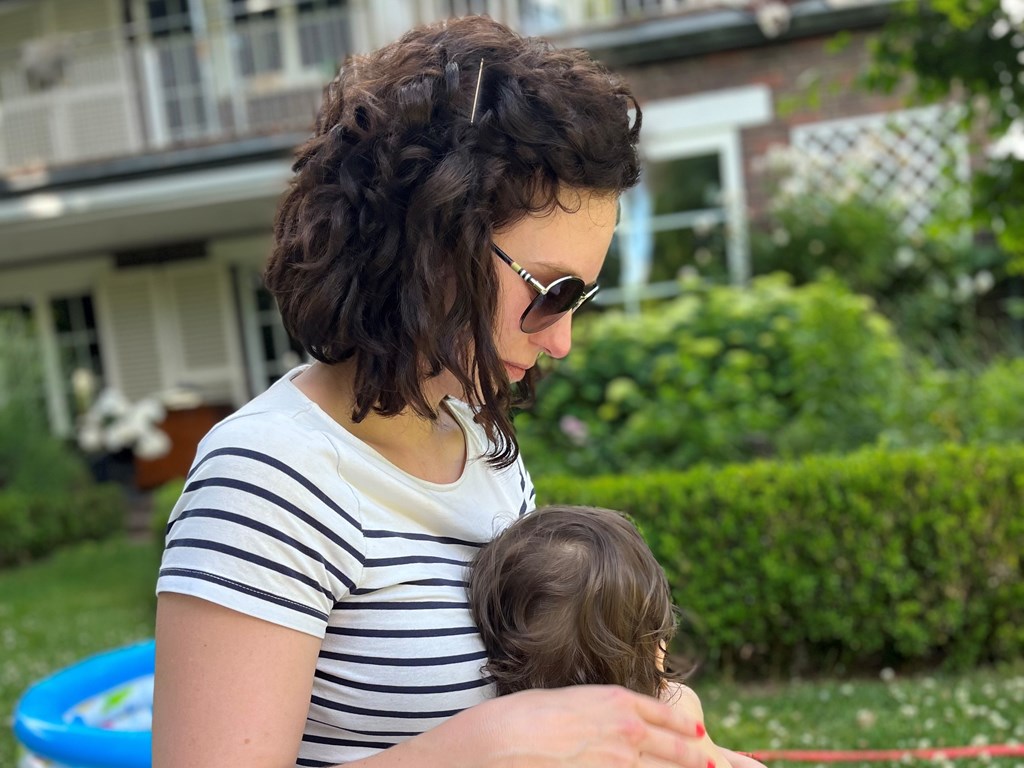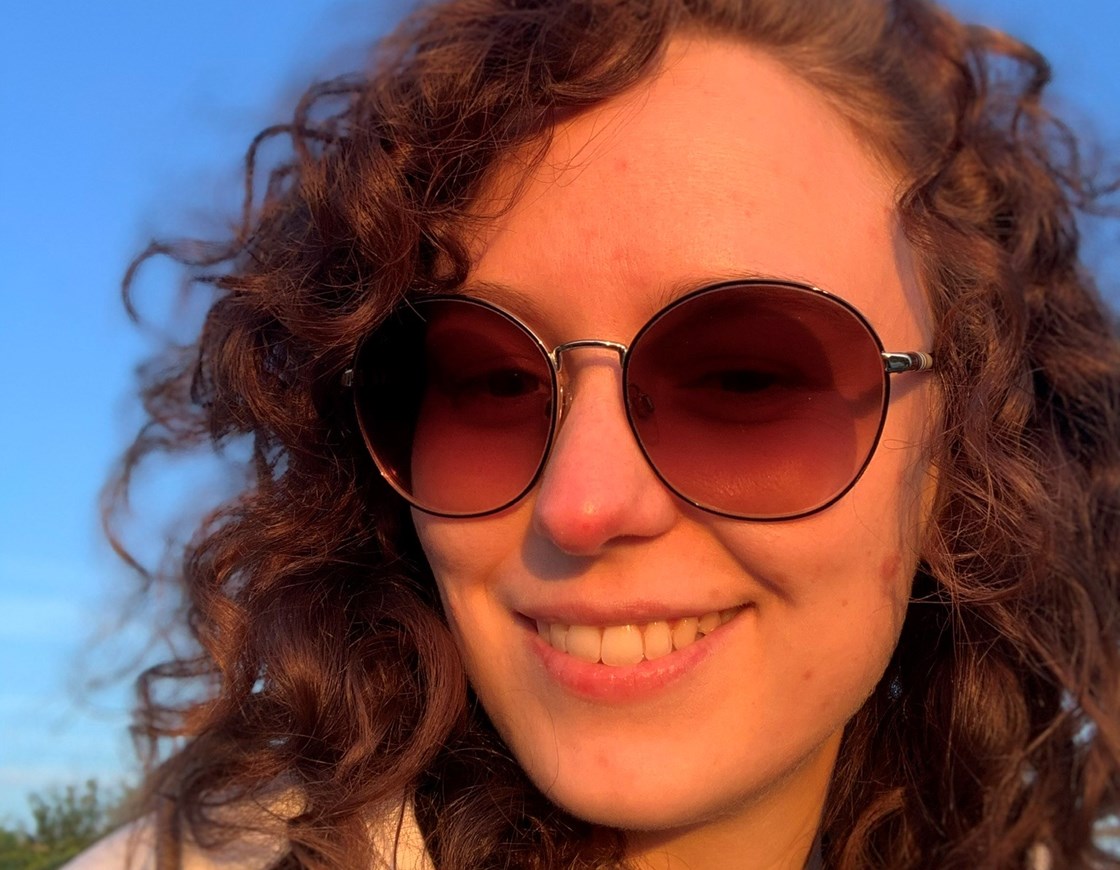It’s a match: How genetic testing helped Clara find the right donor
In 2021, Clara became a solo mum through sperm donor conception. Due to her family's medical history, she wanted to minimise the risk of passing a hereditary disorder to her child. A genetic screening from European Sperm Bank gave her peace of mind.

In 2019, when Clara started her search for a sperm donor, trust and personalised counselling made her choose European Sperm Bank. This was especially important to her, as she comes from a family in which there is serious hereditary disorders.
“Growing up, we never really spoke about disease in my family; the generation that had lived through World War II would become sick but it was never spoken about. If a relative died of cancer, it was simply said: ‘Uncle Dieter is dead because there was something wrong with his stomach’; the cause of death, however, was kept a secret,” explains Clara.
For a long time, she knew nothing about the hereditary conditions running in her family. That made her all the more surprised, when her cousin’s sweet baby girl was born with a genetic condition.
“I wanted to rule out the risk of me carrying this mutation in my genes and passing it on to my child if I were to become pregnant.”
The advisors at European Sperm Bank told Clara about GeneXmatch, a genetic screening, that analyses the mother’s genes and compares them with her chosen donor to make sure they are compatible.
It was important for me to keep the risk of hereditary diseases as low as possible.
GeneXmatch - the genetic test that offers extra peace of mind
We all carry mutations in our genes. In some cases, we can pass on these genetic mutations to our children, causing them to develop serious health issues. Some disorders, the so-called recessive disorders, occur when the woman and the man creating a child have mutations in the same gene. Other disorders, the dominant disorders, are passed on to a child even if only one of the parents carries the genetic mutation in question.
With GeneXmatch, women can screen their genes for a wide range of these two types of hereditary disorders. The test determines if the woman carries a dominant disorder in her genes and then compares her genes with those of her preferred donor to assess the risk of recessive disorder in a potential child. The genetic screening covers 400 of the most serious or common hereditary disorders and as a result, it increases the chance of having a healthy baby.
GeneXmatch can uncover gene mutations that the woman may not know about because she does not have any symptoms of the related condition herself. Nevertheless, the mutation could impact the baby. Most of the disorders covered by GeneXmatch are not detected through standard screenings like NIPT (during pregnancy) or the newborn blood spot test.
I was so happy that my favourite donor was a good match for me.
European Sperm Bank tests all potential sperm donors thoroughly before they are approved. This includes a detailed review of their family medical history going back three generations as well as a chromosome analysis, where the size, shape and number of the donor candidate's chromosomes is examined.
He is also screened for some of the most frequently occurring hereditary disorders. This test is important because the donor candidate might carry a faulty gene without being sick himself. However, he could pass it on to a child, who could be affected. The mother could carry it too without being affected.

A quick and easy test reassured Clara
“For me, there was no doubt. I wanted to be on the safe side”, Clara says of her decision to go with GeneXmatch.
“It gave me peace of mind to know whether I carry dominant gene mutations in me and likewise, to check if my preferred donor and I shared the same genetic predisposition for recessive disorders”, she continues.
Clara received a test kit in the post with a test tube to spit into. Then she sent her sample to the specialised lab, that European Sperm Bank works closely with. It was very quick and easy.
The result reassured her. Her preferred donor was a good match; the test did not find any shared gene mutations that could trigger disease in a future child. Also, no risk of dominant disorders was detected in Clara’s genes.
“If there had been too high a risk of hereditary disorders with the donor I had chosen, I would have looked for another donor because it was vital for me that the risk of hereditary diseases be kept as low as possible”, she says.
“I was so happy that my favourite donor was a good match for me.”

The GeneXmatch test kit with the saliva sample test tube.
Polly's reason for choosing a GeneXmatch test
Choosing a genetic screening like GeneXmatch is a personal matter. It can be particularly relevant for people who have conditions running in the family or people who need extra reassurance.
For Clara, it was important to be on the safe side, having seen the impact of a genetic disorder first hand.
“My cousin's daughter is doing really well and is leading a carefree life. But some children with the same genetic condition need an organ transplant immediately after birth; so the genetic mutation has more serious consequences for them”, Clara explains.
She decided that she did not want to take that risk. Not for herself and especially not for the life of her future child.
Clara is in a paid partnership with European Sperm Bank.
She shares her experience as a single mother by choice on Instagram under the alias Polly Freytag.
You might also enjoy
 Life as a parent
Life as a parentTelling Your Child That They're Donor-Conceived: The Full Guide to Parents
Do you wonder when and how to tell your child that he or she is donor-conceived? In this blog post, we offer advice on how to tell your child about their donor conception including what to say when.
 Solo motherhood
Solo motherhoodAre you ready to be a single mother? 7 survival tips for single mothers by choice
If you’re considering becoming a solo mum, you’re probably asking yourself questions like 'how will I cope with years of interrupted sleep?' Or, 'what about male role models?' Here's our guide to making life as a single mother by choice as easy as possible.
 Helle Tyllesen
Helle Tyllesen
